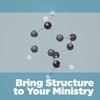When the topic of online groups comes up, people typically think of video-based platforms like Zoom. While this format is popular for some, it’s not the only way to meet online. When my first online group met in 1994 on CompuServe, there was no option for audio or video. You could only do so much with a dial-up modem. Yet friendships were formed, members were encouraged, and one guy came to Christ as a result of that group.
When you think about types of online groups today, consider these two questions:
- What is the purpose of the group?
- How can groups meet online?
Let’s look at both.
What is the Purpose of the Group?
Groups meet for a variety of reasons—connection, encouragement, Bible study, and even support. While in this season of Coronavirus, every group needs an element of support. When meeting with the groups of pastors I coach, we start with a check-in on how everyone is doing. These are crazy times, and not everybody is doing great. Allow time in every group for members to check-in and process what they’re dealing with. While content is at the center of the meeting, people also need conversation.
Recovery groups, DivorceCare and GriefShare, have also gone online meeting the needs of a record number of people including those who might never darken the door of your church. These support groups are finding amazing results, despite initial reluctance to meeting online. Ministries like Celebrate Recovery and the Alpha Course never imagined online groups would work, but they are seeing numbers like never before. In a recent interview, Nicky Gumbel, founder of the Alpha Course, mentioned one pastor in New York is starting a new Alpha group every day.
How Can Groups Meet Online?
Online groups can choose from a variety of meeting formats—video, audio-only, or asynchronously. As with in-person small groups, one size does not fit all for online groups either.
Video-based Platforms
Groups meeting via video conferencing platforms offer a multidimensional online group experience. Members can see each other, hear each other’s voices, text chat during the meeting, and share a teaching video. While Zoom is very popular, there are several other paid or free services including: GotoMeeting, Webex, Microsoft Teams, Google Hangout, Google Meets, and Facebook Groups among others.
Now, in the world of working at home and schooling at home, people have begun to experience Zoom fatigue. Fortunately, if people struggle with Zoom fatigue or are technologically challenged, there are other options.
Audio-Only Group
Audio-only groups meet on a conference line via phone. Free services like freeconferencecall.com are available to anyone who would like to set up a conference line. Typically, these services offer a toll-free number.
The only downside of an audio-only group is the inability to see when others are about to speak. Sometimes you get into that stalemate like when you reach a four-way stop: “You go, no you go.” But, you can learn to yield to others. The leader can ask who has a comment, and then encourage members to start with a short answer like “I do.” Then you can call on them and avoid the traffic jam.
Asynchronous Groups
Asynchronous groups are simply groups that don’t meet at the same time. Group members can leave a post in a private Facebook group, send a group text, post a short video on the Marco Polo app or, share a YouVersion reading plan together. You may not realize, but you use asynchronous groups all of the time: text message, email, Facebook, Instagram, Twitter, and other social media. We could even go back to letter writing, but it would take a while for a group to get through a lesson that way.
Asynchronous groups are like my group on CompuServe in 1994. Someone posts a question, and then the group responds when they are able. These groups are great for people who travel or who have odd schedules. They can participate in the group when it’s convenient for them. Group leaders post questions and moderate the group.
Asynchronous groups are also great for people who are new to online groups or joined through your online worship service. Jay Kranda, the Online Campus Pastor at Saddleback Church, says, “Private small groups will start off primarily via text-based interactions, move to audio calls after a few weeks, and hopefully turn into regular Zoom or Facebook video calls as trust is built within the group.” Every asynchronous group doesn’t need to transition to an audio or video group, but they certainly could move in that direction.
Digitally Interactive Curriculum
This is another form of asynchronous groups, but with a unique video-based format. Groups and their members login and interact with the video by leaving comments during the video, after the questions, and for each other.
This platform can be used with individual groups interacting with a study like Jennie Allen’s Get Out of Your Head on Zondervan’s Studygateway. Individuals can participate with the thousands of others doing the study or leaders can form their own groups.
Churches can host their own digitally interactive curriculum through the parent technology from a company called Rali. Rali is principally a business platform, but the company has a heart for the church. Rali can be used for small group studies, Bible studies, recorded worship services, membership classes, Growth Track, or any other content you could host online. Members can interact with the content in general (like an online worship service) or in an online group. Pastors can view metrics for who is using the platform, where they live, what they’re interested in, how long they engage with the video, etc. I believe Rali is the solution for what 300,000 churches are dealing with right now. (I do not have any affiliation with Rali. I’m just a big fan.)
Concluding Thoughts
During the Coronavirus pandemic, every church in every state is facing different pressures. Only about 30% of churches are meeting in-person and are seeing less than 40% attendance. (If you’re the exception, let me know. I’d like to hear what you’re doing). That means that the way the Church fulfills our mission in the coming months will be different from anything we’ve ever done. If you are relying on the metrics that gauged your success a year ago, you are probably very depressed right now. Fear of catching COVID-19, fear of spreading it, and fear of being blamed for spreading it at church are keeping most churches closed and keeping people away. That’s your reality. But, COVID-19 isn’t even close to being the gates of hell (Matthew 16:18).
This is an era of opportunity. People are tuning into online services that wouldn’t darken the door of your church. Millennials are attracted to online worship services because they can watch the service and no one is watching them. Like I said before, support groups like Celebrate Recovery, are posting bigger numbers than when they met in-person. The Alpha Course is doing the same. Pastors and churches are great at developing content, but people also need conversation and community even when they can’t meet for in-person services.
Online small groups – in whatever form – are a strong solution to this current situation. But, it’s bigger than this. There are so many benefits to online small groups that go beyond social distancing.
In a recent conversation, a pastor told me that this season of ministry is not unlike the invention of the printing press that fueled the Reformation. The church is no longer limited to an hour on Sunday, but can now offer worship services 168 hours per week. The same goes for groups, Bible studies, classes, and growth tracks. Could Zoom, Youtube, or Rali be your church’s new printing press?
Allen White has coached over 1,500 churches in the areas of small groups and discipleship. He is the author of four books including the newly released Leading Online Small Groups: Embracing the Church's Digital Future.









